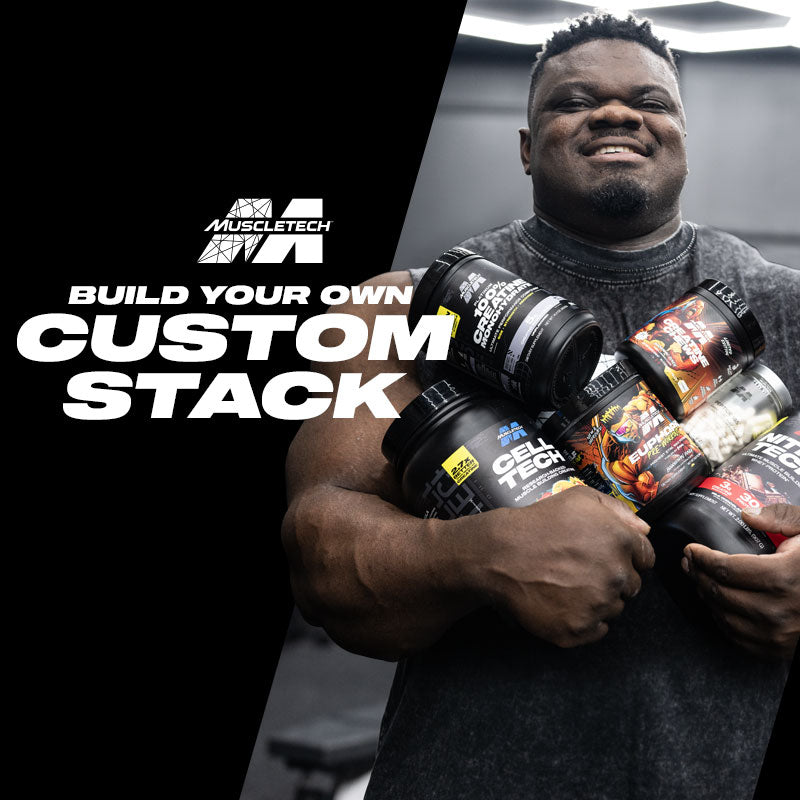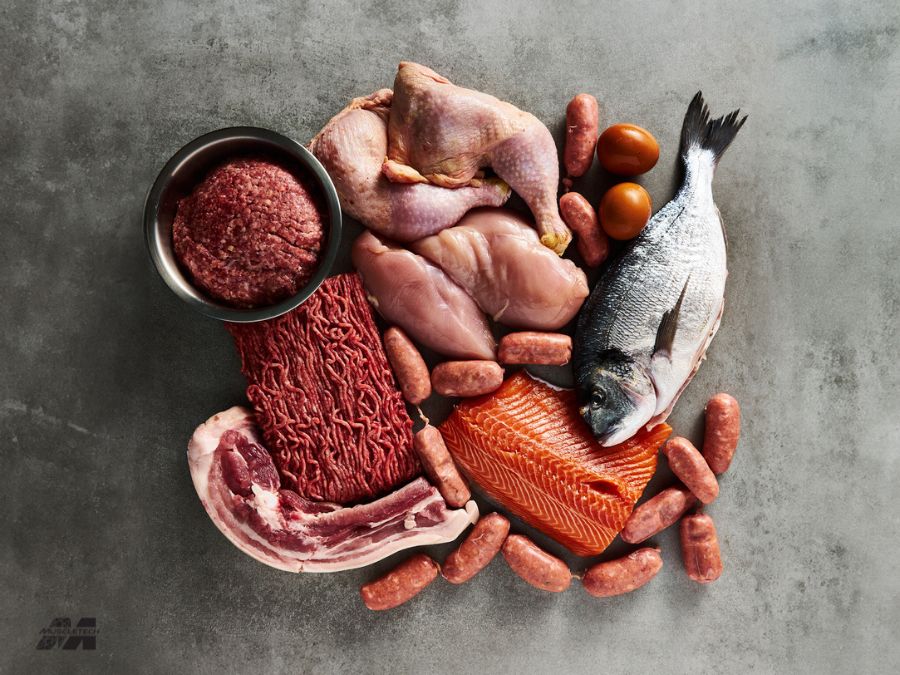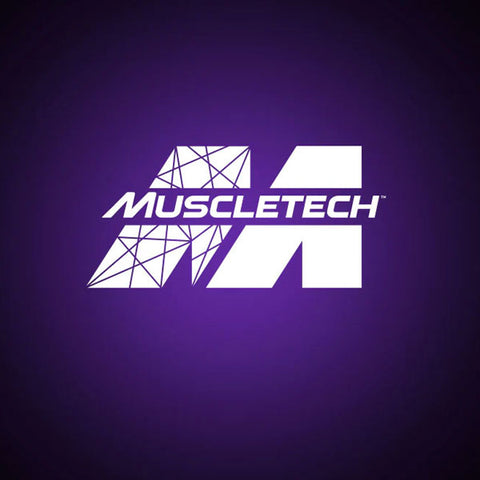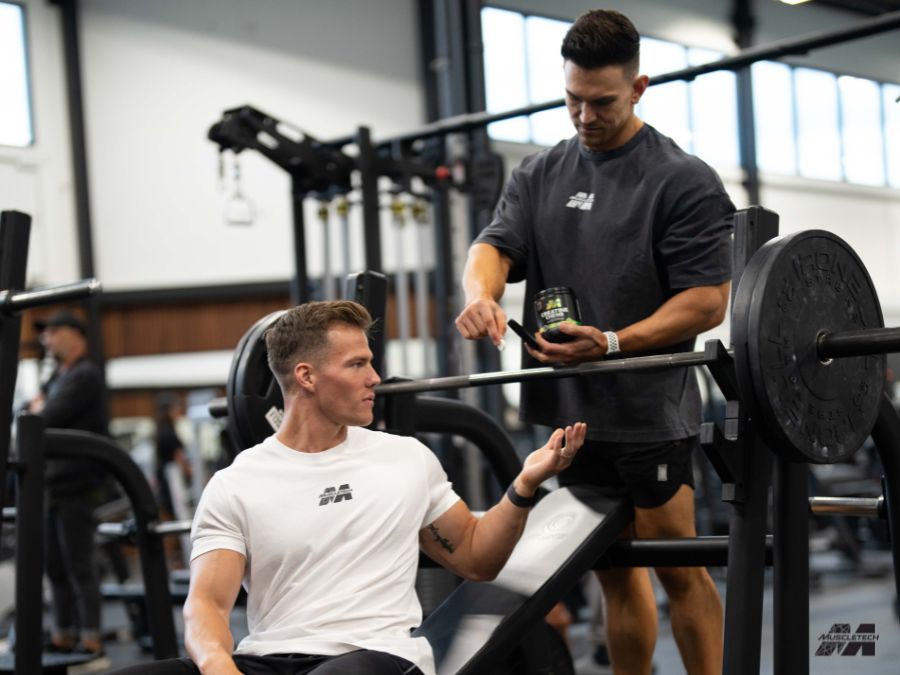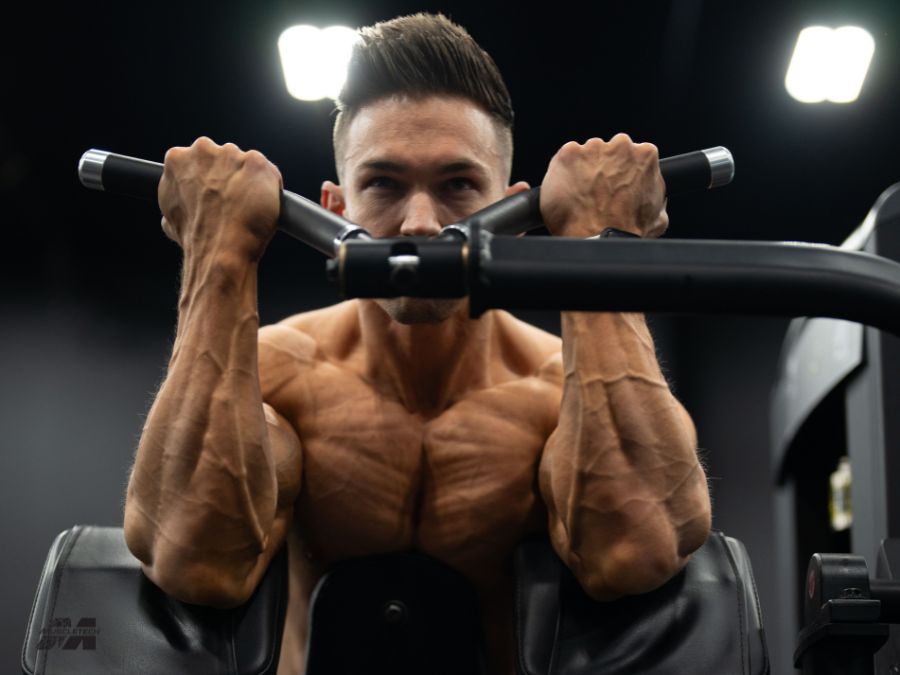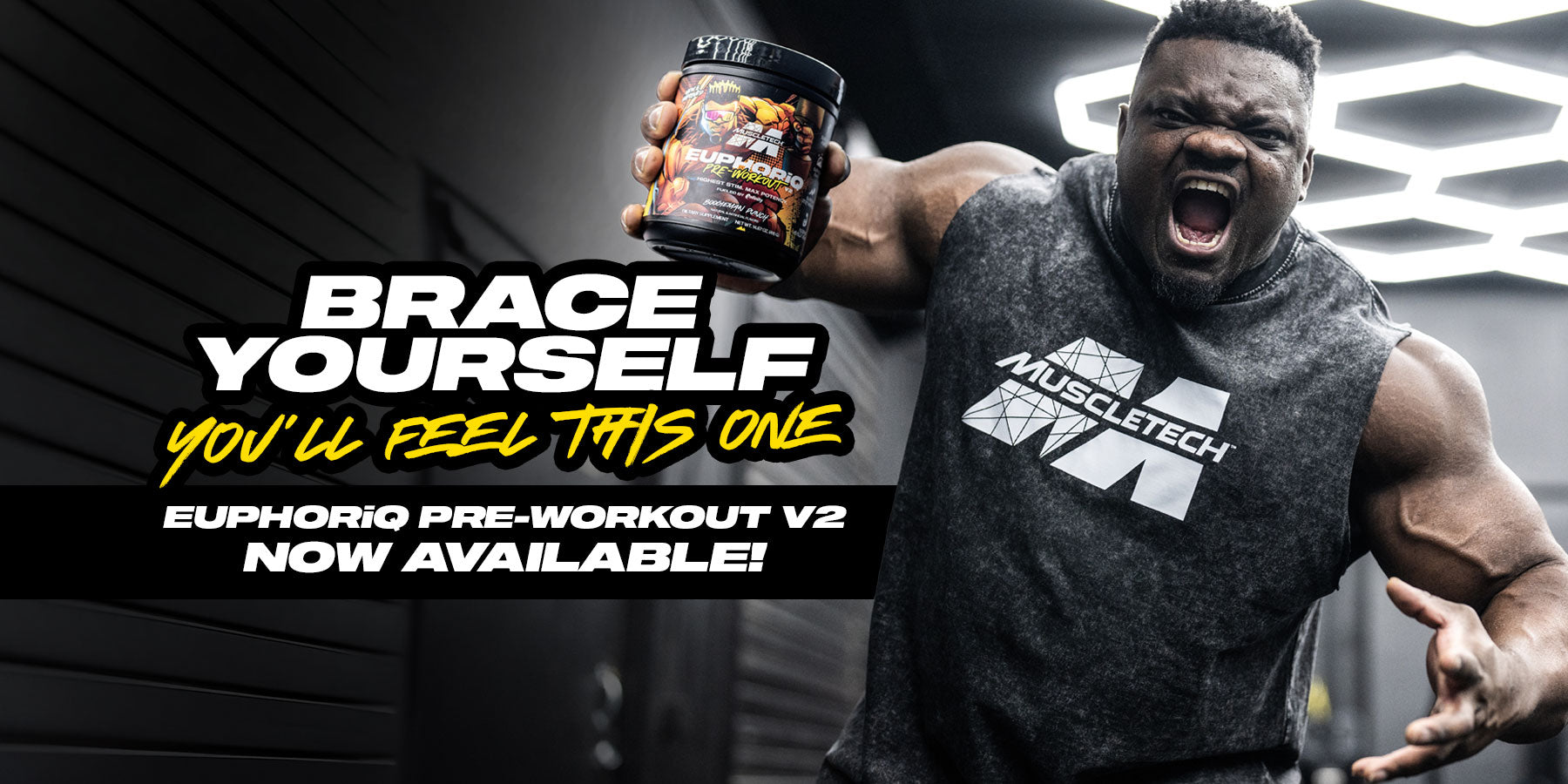When you are serious about muscle gains, you must get serious about your protein intake. Protein is required to rebuild and strengthen your muscles after an all-out assault on the weights. (1)
You see, with each rep you perform (assuming you are using a challenging weight to hit your rep count), the muscle tissue experiences micro-tears. (1) The body then must mend these tears, and this is where protein comes in.
A sufficient amount of protein intake post-workout and throughout the rest of the day facilitates the repair process and helps to ensure that your muscles recover, adapt, and grow. (1) In other words, protein helps you get bigger and stronger!
In addition to helping you get large and in charge, protein is essential for synthesizing various enzymes, hormones, and other cellular structures. (2) Many of these contribute to overall metabolic function to keep you in tiptop shape. (2)
Plus, if you find yourself in a cutting phase then maintaining an adequate protein intake can also help preserve muscle mass while in a caloric deficit. (1) So, keep your protein intake up, even on a diet. Cause no one wants to lose muscle during a cut. No one.
Ok, now that we have gone over why you want to keep your protein intake up, let us go over the ins and outs of protein intake.
In this article, we will do a complete review of protein, its importance, and the various kinds. We’ll even dispel the common myths around protein consumption so that you can optimize your protein intake and elevate your training.
Table of content
Protein Basics for Bodybuilding
Amino Acids
Amino acids are the building blocks of protein and supply the materials needed for muscle tissue repair. Twenty different amino acids are divided into essential amino acids and non-essential amino acids.
Essential amino acids (EAAs) include histidine, isoleucine, leucine, lysine, methionine, phenylalanine, threonine, tryptophan, and valine. These are essential because the body cannot synthesize them and must be consumed in the diet. (3)
Conversely, the body can synthesize non-essential amino acids (NEAAs), which do not need to be consumed through food. (3)
Regarding bodybuilding, the amino acids that yield the most significant effect on muscle building and repair are the branched chain amino acids (BCAAs). These amino acids are particularly important for stimulating muscle protein synthesis and supporting muscle health. (1)
Types of Proteins
Sources of protein can be categorized as either complete or incomplete. Complete proteins supply all the EAAs required by the body. Whereas incomplete proteins are missing (or have an exceptionally low amount) of one or more of the EAAs. (4)
Also Read: The Perfect Bodybuilding Diet Plan
1. Complete Proteins
Animal sources (e.g., beef, poultry, pork, lamb and game meats) are considered complete proteins. You can also find them in seafood such as fish, crustaceans, and scallops.
If you prefer not to consume meat, you can opt for other animal products such as milk, cheese, yogurt, and eggs to provide the essential amino acids you need. (1) Likewise, some plant-based options also qualify as complete proteins.
Additionally, you can use high-quality protein supplements like whey powder to get your protein needs. (1) However, if you want something even better than whey protein, check out Nitro-Tech®. It has been shown in a double-blind study to be better than whey protein! (5)
Also Read: The Ultimate Guide to Protein Powders
2. Incomplete Proteins
Most plant-based protein sources will fall into this category since most plants do not provide all the EAAs the human body needs.
So, vegetarian or vegan bodybuilders must pay careful attention to their protein consumption. A deficiency in one or more of the EAAs can hamper their muscle-building results. (1)
Fortunately, you can strategize your protein intake of plant-based sources by combining various food items throughout the day or within your meals. (6) This will allow you to account for all the required amino acids that you need. For example, combining beans with rice, hummus, and whole-grain bread can create a more complete amino acid profile.
Also Read: Low-Calorie High Protein Meals - A Complete Guide
Common Protein Sources for Bodybuilders
1. Whey Protein
Whey protein is derived from milk during the cheese-making process. Whey protein is the go-to choice to maximize your muscle gains as a bodybuilder post-workout. This is because whey protein is rapidly digested and has a complete amino acids profile containing all EAAs. (1) Just remember what we said about Nitro-Tech tho!
2. Casein Protein
Casein is also extracted from milk; however, it differs from whey protein because it is more slowly digested. (1) Once consumed, casein protein forms a gel-like substance in the stomach, which causes a sustained release of amino acids into the bloodstream over time. (1)
Since it is digested more slowly, casein protein can be a great option during periods of fasting, such as long stretches between meals or as a pre-bed snack.
3. Egg White Protein
Egg white protein is one of the most digestible forms of protein you can consume. (1) It offers a complete amino acid profile, and because the yolk is not included, it can be a lean protein source. Also, egg white protein can be a viable option for those sensitive to lactose or want an alternative to dairy proteins.
4. Soy Protein
Soy protein is a plant-based protein that is made from soybeans. (1) Soy protein is an excellent option for vegetarians and vegans as it contains all essential amino acids. (1) Additionally, soy protein is rich in antioxidants.
5. Pea Protein
Pea protein is another plant-based protein option made from yellow peas. The pros to pea protein are that it is easily digestible, hypoallergenic, and can be tolerated well if you have dairy or soy sensitivities. Like soy protein, pea protein contains all the essential amino acids. (7) Thus, making it a good option for bodybuilders on a plant-based diet.
6. Collagen Protein
Collagen is the most abundant protein in the human body and is associated with connective tissues such as skin, bones, ligaments, etc. (7) However, collagen protein is not ideal for muscle building as its amino acid profile resembles connective tissue more than skeletal muscle. It’s more beneficial for joint and tissue health. (7)
7. Beef Protein
As the name implies, beef protein is sourced from beef products such as cows. Beef protein is an excellent option for all nine essential amino acids. Since it is also a red meat product, beef protein can also provide you with an additional creatine source, which aids in the muscle-building process (albeit it is a small amount).
8. Seafood & Freshwater Fish
Sources of protein from the sea and freshwater (fish, crustaceans, and scallops) provide all the EAAs you need to help build muscle. As a bonus, some of these protein sources even provide healthy fat sources, such as Omega-3 fatty acids.
Also Read: Slow vs Fast Absorbing Protein and When to Take Each
9. Poultry
Chicken and turkey are popular choices in many bodybuilders' diets as they provide all the EAAs and can be an inexpensive option compared to fish and beef. Poultry is typically a lean source of protein and can provide variety in the dishes you make with it.
Protein Requirements for Bodybuilders
Daily Protein Intake Guidelines
Protein intake can be a hot topic for bodybuilders, but when it comes to muscle building, airing on the side of more is usually a good idea. (1) The specific amounts of protein you need will depend on goals, body weight, intensity of your training sessions, gender, and health status.
As a rule of thumb, if your goal is muscle building a good target is around a gram of protein for every pound of body weight (per day). (1) Doing so will help you to meet the recovery demand of your muscles from training. (1)
Also Read: The Importance of Protein for Runners
Protein Timing
Pre-Workout Nutrition
Consuming a protein source before training is beneficial before exercise to supply a steady stream of amino acids throughout your training. (1) This may be especially important for those who work out in the morning or after a long fast (when food intake has been scarce).
After a long break from eating, you may be in a depleted state and your body might break down muscle tissue for sustenance. To help avoid this, it is recommended to consume a protein-rich meal before you hit the weights.
Intra-Workout Nutrition
If you find yourself battling through intense or prolonged training sessions, having a protein source as you train may also be a good idea. Studies have shown that consuming protein during a workout may support favorable changes in muscle building and breakdown. (1)
Post-Workout Nutrition
If you cannot get a protein-rich meal before or during your workouts, you will want one afterwards. Post-workout nutrition is vital to your success as a bodybuilder.
After a training session, your body is primed and ready for nutrient intake to begin recovery, specifically via protein intake and enough of it to kickstart muscle protein synthesis. (1)
The type of protein you consume is essential as you want rapid digestion and a high leucine content, as reaching a leucine threshold initiates muscle protein synthesis. (1)
Whey protein will be an excellent choice post-workout as it is easily consumed and rapidly digested. Whey protein is also typically higher in leucine than other protein sources. (1)
However, depending on your training schedule, having a protein-rich meal with complete protein sources will also work. (1) The amounts you need depend on the above-mentioned factors; a good target for post-workout protein is about 20-40 grams.
Protein Supplement Options for Bodybuilding
Whey Protein Powders
As mentioned, whey protein is an excellent option if you struggle to reach your protein needs as a bodybuilder. It digests quickly and gives you everything you need to kickstart the muscle-building process and promote immediate muscle recovery and growth post-workout.
If you need a high-quality protein supplement, then look no further than MuscleTech's Grass-Fed 100% Whey Protein, IsoWhey or Nitro-Tech®.
Casein Protein Powders
Utilizing a casein protein product can be helpful if your workplace requires extended periods between meals. (1) Casein can also help as a pre-bedtime snack if you wake up and are hungry but cannot have breakfast within a meaningful amount of time or want to top off your daily protein.
Also Read: The 7 Best Protein Powders for Athletes
Plant-Based Protein Powders
Plant-based protein powders can benefit you if you choose not to consume animal products but also have difficulty reaching your protein needs. If you are using a protein source that is fully plant-based, then being vigilant about assessing what amino acids are present in the formula is vital.
A plant-based product such as Plant Protein by MuscleTech is an excellent choice as it supplies everything you need as a plant-based bodybuilder.
Collagen Protein Powders
If you find yourself developing achy joints or want to ensure your connective tissues have everything they need to remain healthy and strong, then using a collagen supplement can help.
However, since collagen does not have the essential amino acids required to build muscle mass, consuming other forms of protein is vital to ensure your muscles get the amino acids they need.
An excellent option for collagen supplementation is Collagen Peptides by Purely Inspired as it provides ample collagen protein.
Common Myths and Considerations
Myth 1: You Can't Absorb More Than 50g of Protein Per Meal
According to research, there is no upper limit to how much protein you can absorb. (9) The more important question is, are you achieving enough protein in one sitting to stimulate protein synthesis, and more specifically, are you reaching your leucine threshold periodically throughout your day?
Myth 2: You Can't Build Muscle with Plant Protein
Building muscle with plant-based protein can be a viable alternative to animal products if all the EAAs and calories required for muscle growth are met. (7)
You can do this through proper meal planning or supplementation to ensure your muscles have what they need to grow.
Myth 3: High Protein Diets Damage Your Kidneys
The myth that high-protein diets lead to kidney damage has persisted, causing concerns among individuals, including bodybuilders. However, there is a lack of substantial evidence supporting the idea that high protein intake is detrimental to kidney health in healthy populations. (1)
However, if you suspect that you may have underlying medical conditions that may impact the health of your kidneys consult with a healthcare professional before starting a high-protein diet.
Wrapping Up on Protein
If you want to level up your gains and grow as much muscle mass as possible, dialing in your protein intake is essential. Achieving the correct amount of protein for your goals, body weight, gender, and training intensity is paramount for muscle growth and overall metabolic function.
To do so, you can choose from various protein types and protein sources. Whether through complete protein sources, a combination of incomplete protein sources, or both.
Achieving enough protein as a bodybuilder through whole foods can be challenging. Fortunately, there are high-quality protein supplements on the market today, especially those produced by MuscleTech, that can help you reach the protein targets you have.
Now, use this comprehensive protein guide as a resource, pick up a protein supplement if needed, and watch the muscle gains flood in.
Read this complete guide to workout supplements to learn how they can improve your training.
References:
- Jäger, R., Kerksick, C. M., Campbell, B. I., Cribb, P. J., Wells, S. D., Skwiat, T. M., Purpura, M., Ziegenfuss, T. N., Ferrando, A. A., Arent, S. M., Smith-Ryan, A. E., Stout, J. R., Arciero, P. J., Ormsbee, M. J., Taylor, L. W., Wilborn, C. D., Kalman, D. S., Kreider, R. B., Willoughby, D. S., Hoffman, J. R., … Antonio, J. (2017). International Society of Sports Nutrition Position Stand: protein and exercise. Journal of the International Society of Sports Nutrition, 14, 20. https://doi.org/10.1186/s12970-017-0177-8
- Lewis, T., & Stone, W. L. (2020). Biochemistry, proteins enzymes.
- Dioguardi F. S. (2011). Clinical use of amino acids as dietary supplement: pros and cons. Journal of cachexia, sarcopenia and muscle, 2(2), 75–80. https://doi.org/10.1007/s13539-011-0032-8
- Lopez, M. J., & Mohiuddin, S. S. (2023). Biochemistry, Essential Amino Acids. In StatPearls. StatPearls Publishing.
- Burke DG, Chilibeck PD, Davidson KS, Candow DG, Farthing J, Smith-Palmer T. The effect of whey protein supplementation with and without creatine monohydrate combined with resistance training on lean tissue mass and muscle strength. Int J Sport Nutr Exerc Metab. 2001 Sep;11(3):349-64. doi: 10.1123/ijsnem.11.3.349. PMID: 11591884.
- Aaslyng, M. D., Dam, A. B., Petersen, I. L., & Christoffersen, T. (2023). Protein content and amino acid composition in the diet of Danish vegans: a cross-sectional study. BMC nutrition, 9(1), 131. https://doi.org/10.1186/s40795-023-00793-y
- Babault, N., Païzis, C., Deley, G., Guérin-Deremaux, L., Saniez, M. H., Lefranc-Millot, C., & Allaert, F. A. (2015). Pea proteins oral supplementation promotes muscle thickness gains during resistance training: a double-blind, randomized, Placebo-controlled clinical trial vs. Whey protein. Journal of the International Society of Sports Nutrition, 12(1), 3. https://doi.org/10.1186/s12970-014-0064-5
- Stefanovic B. (2013). RNA protein interactions governing expression of the most abundant protein in human body, type I collagen. Wiley interdisciplinary reviews. RNA, 4(5), 535–545. https://doi.org/10.1002/wrna.1177
- Trommelen, J., van Lieshout, G. A. A., Nyakayiru, J., Holwerda, A. M., Smeets, J. S. J., Hendriks, F. K., van Kranenburg, J. M. X., Zorenc, A. H., Senden, J. M., Goessens, J. P. B., Gijsen, A. P., & van Loon, L. J. C. (2023). The anabolic response to protein ingestion during recovery from exercise has no upper limit in magnitude and duration in vivo in humans. Cell reports. Medicine, 4(12), 101324. https://doi.org/10.1016/j.xcrm.2023.101324
